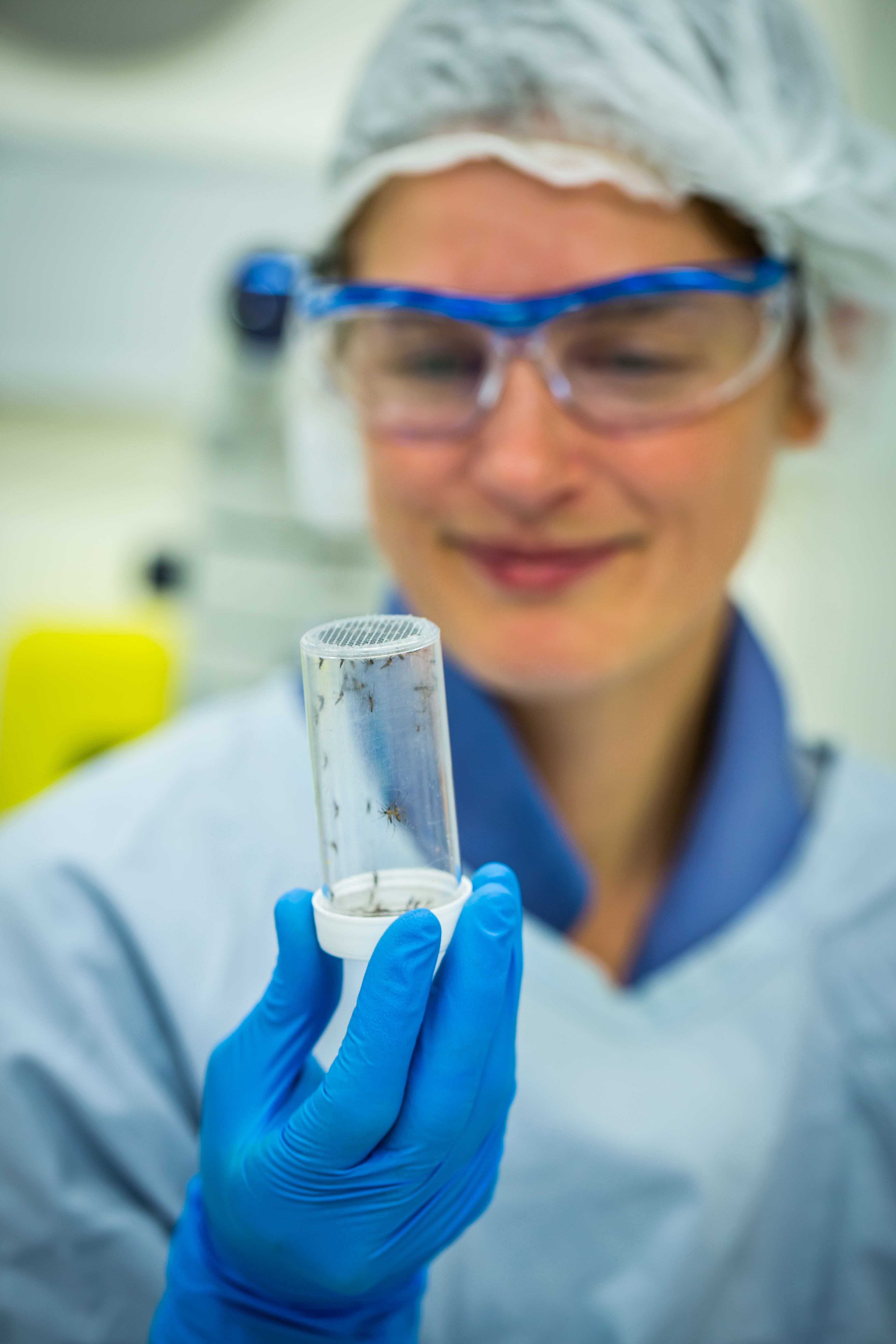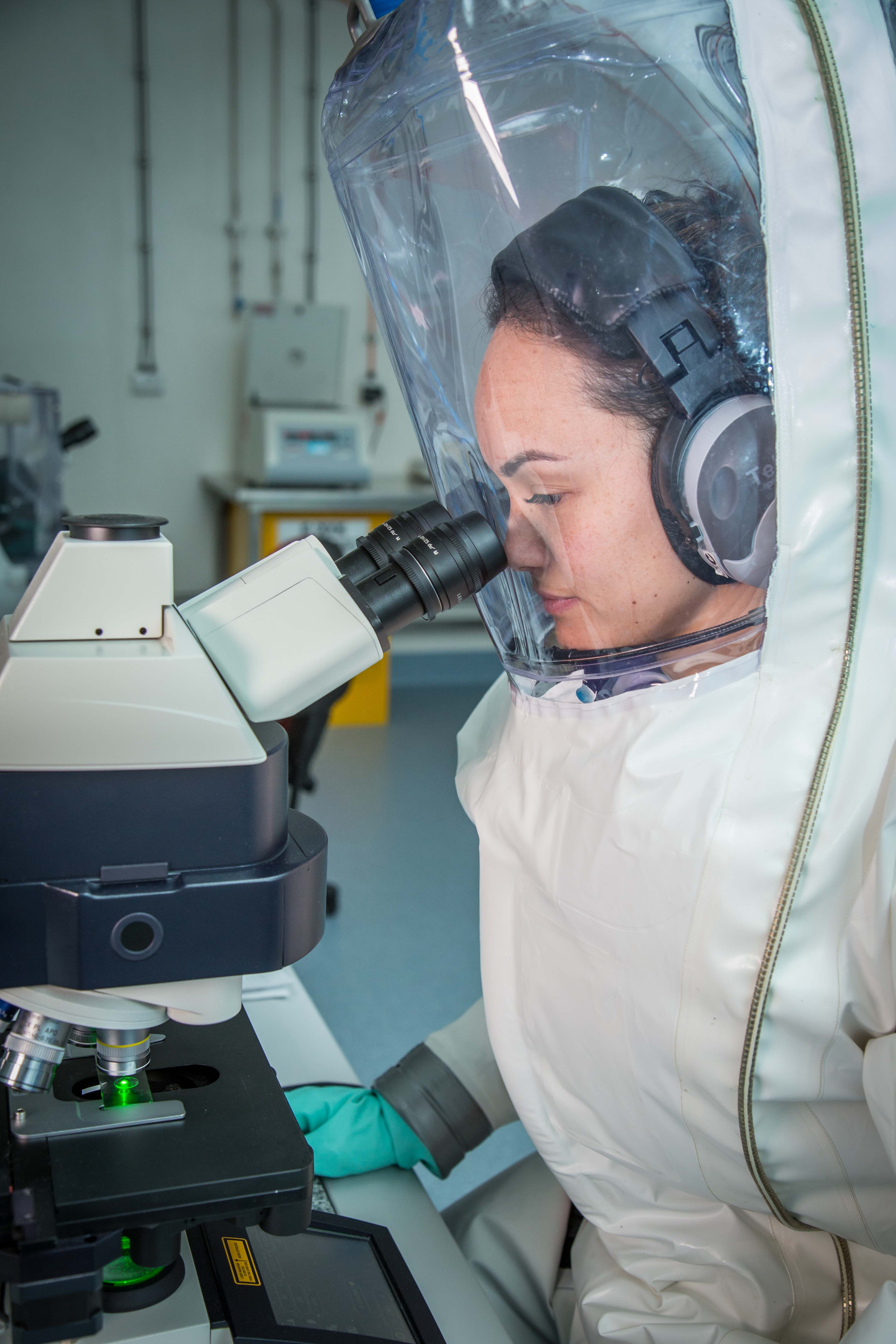The Australian Centre for Disease Preparedness (ACDP), formerly known as the Australian Animal Health Laboratory (AAHL), helps protect Australia’s multi-billion dollar livestock and aquaculture industries, and the general public, from emerging infectious disease threats. It is a high-containment facility designed to allow scientific research into the most dangerous infectious agents in the world. With expertise in virology, molecular biology, immunology, vaccinology, microscopy and diagnostics, we are working to increase resilience to infectious diseases outbreaks through improved preparedness and responsiveness.

Postgraduate students
We are keen to attract outstanding and highly motivated postgraduate students to work with us at our bio-containment facility. There are opportunities each year for Masters and PhD students already enrolled at Australian tertiary institutes.
We advise you to review ACDP's research section of CSIROs website to gain an understanding of the scope of our research.
If you are an international student, please check the requirements and criteria for the individual opportunities listed. It is recommended that international applicants view the Australian Government website, Study in Australia.
Postgraduate scholarships: Postgraduate students who partner with CSIRO to complete their Masters or PhD studies, will gain access to world-class facilities and have a unique opportunity to work alongside our leading research scientists.
Register your interest for postgraduate opportunities with CSIRO's Australian Centre for Disease Preparedness.
Current students' research
- Developing cell lines for African swine fever virus vaccines and diagnostics
- Using mosquitoes as a surveillance tool to detect novel and existing pathogens of humans and animals
- Investigating the role of rabies matrix protein in virus assembly, budding and transmission
- Protecting Poultry from Avian Influenza
- A new tool for neuroscience: reverse engineering viral induced synaptogenesis
- Optimising high containment in vivo infectious disease studies and animal welfare outcomes
- Isolation and characterisation of a novel phlebovirus with zoonotic potential from ticks in Australia
- Improving our ability to differentiate between male and female chicks pre-hatch
- Investigating options for delivery of COVID-19 vaccines and therapeutics for developing nations
- Investigating the new Hendra virus variant.
Other opportunities
 The majority of our student opportunities will be listed on CSIRO's careers portal when available. The types of opportunities include:
The majority of our student opportunities will be listed on CSIRO's careers portal when available. The types of opportunities include:
- Undergraduate vacation scholarships: Offering undergraduate students the opportunity to collaborate with our scientists.
- Industrial traineeships: Tertiary students may complete their compulsory work placement with CSIRO, working alongside leading scientists to further their learning and build long-lasting professional networks.
- Work experience: We offer high school science students the chance to gain first-hand experience of our core research in a scientific environment.
- Opportunities for Indigenous Australians: We're committed to encouraging more Indigenous people to work with us, in both our science and support areas.
Register your interest for student opportunities
The Australian Centre for Disease Preparedness (ACDP), formerly known as the Australian Animal Health Laboratory (AAHL), helps protect Australia’s multi-billion dollar livestock and aquaculture industries, and the general public, from emerging infectious disease threats. It is a high-containment facility designed to allow scientific research into the most dangerous infectious agents in the world. With expertise in virology, molecular biology, immunology, vaccinology, microscopy and diagnostics, we are working to increase resilience to infectious diseases outbreaks through improved preparedness and responsiveness.
Postgraduate students
We are keen to attract outstanding and highly motivated postgraduate students to work with us at our bio-containment facility. There are opportunities each year for Masters and PhD students already enrolled at Australian tertiary institutes.
We advise you to review ACDP's research section of CSIROs website to gain an understanding of the scope of our research.
If you are an international student, please check the requirements and criteria for the individual opportunities listed. It is recommended that international applicants view the Australian Government website, Study in Australia.
Postgraduate scholarships: Postgraduate students who partner with CSIRO to complete their Masters or PhD studies, will gain access to world-class facilities and have a unique opportunity to work alongside our leading research scientists.
Register your interest for postgraduate opportunities with CSIRO's Australian Centre for Disease Preparedness.
Current students' research
- Developing cell lines for African swine fever virus vaccines and diagnostics
- Using mosquitoes as a surveillance tool to detect novel and existing pathogens of humans and animals
- Investigating the role of rabies matrix protein in virus assembly, budding and transmission
- Protecting Poultry from Avian Influenza
- A new tool for neuroscience: reverse engineering viral induced synaptogenesis
- Optimising high containment in vivo infectious disease studies and animal welfare outcomes
- Isolation and characterisation of a novel phlebovirus with zoonotic potential from ticks in Australia
- Improving our ability to differentiate between male and female chicks pre-hatch
- Investigating options for delivery of COVID-19 vaccines and therapeutics for developing nations
- Investigating the new Hendra virus variant.
Other opportunities
The majority of our student opportunities will be listed on CSIRO's careers portal when available. The types of opportunities include:
- Undergraduate vacation scholarships: Offering undergraduate students the opportunity to collaborate with our scientists.
- Industrial traineeships: Tertiary students may complete their compulsory work placement with CSIRO, working alongside leading scientists to further their learning and build long-lasting professional networks.
- Work experience: We offer high school science students the chance to gain first-hand experience of our core research in a scientific environment.
- Opportunities for Indigenous Australians: We're committed to encouraging more Indigenous people to work with us, in both our science and support areas.
